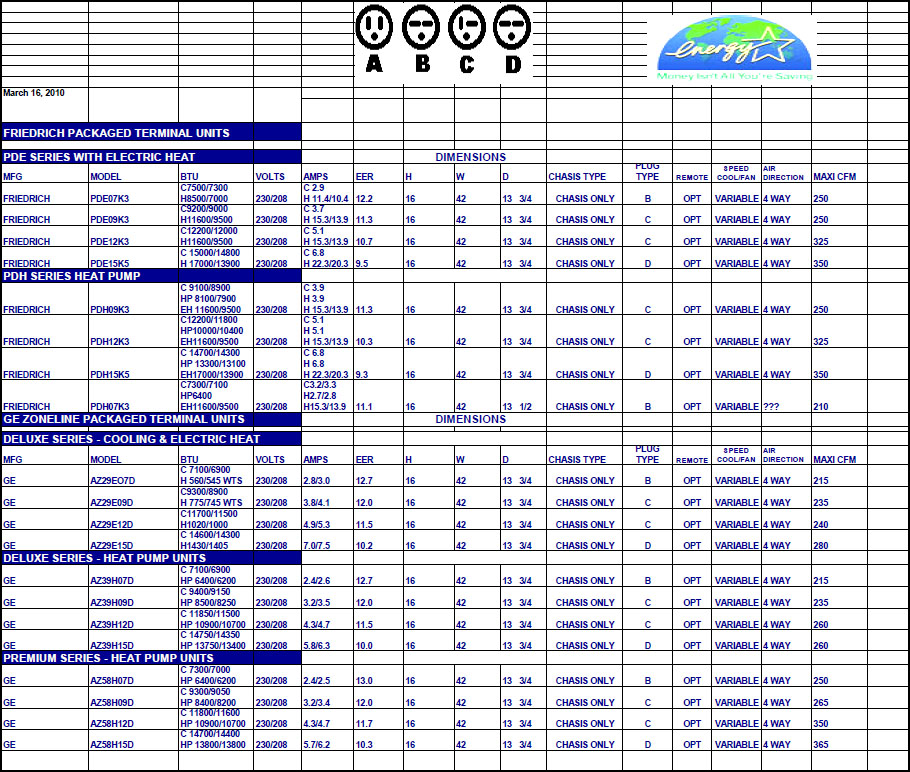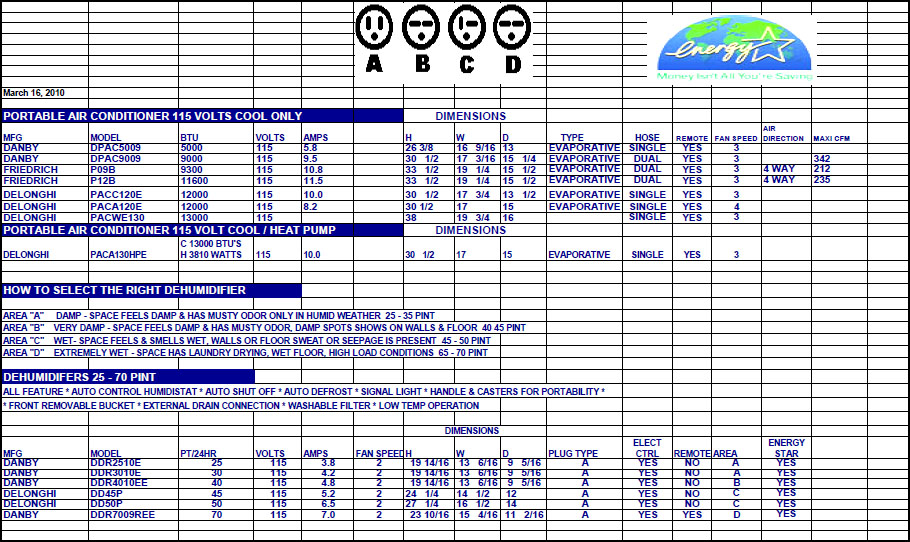

If you have a small area to cool in the summer - say, one or two rooms a room air conditioner may be a more economical choice than a central air conditioning unit. It will cost less initially and it will cost less to operate in the long run.

Most room air conditioners sit in a window where they can exhaust warm air to the outside. Window installations can be drafty, however, so at the end of the warm weather season some people remove the unit from the window and store it for the winter. Room air conditioners can also be built into the wall for a more permanent installation.
Keep in mind that, when choosing a room air conditioner, size is important. A unit that is too small will run continually without cooling the room effectively. On the other hand, if you buy a unit that's too large for the space you're cooling, it actually will be less effective than one that's the correct size. Bigger isn't necessarily better.
Air conditioners work by removing both heat and humidity. Humidity condenses from the air when it passes over the air conditioner's cooling coils. So a unit that is too big will cool the room so quickly that it won't have the opportunity to remove as much humidity from the air as it should. As a result, the unit will keep turning off and on and the room will feel damp, clammy and less comfortable. A properly sized unit, on the other hand, will remove humidity effectively as it cools.
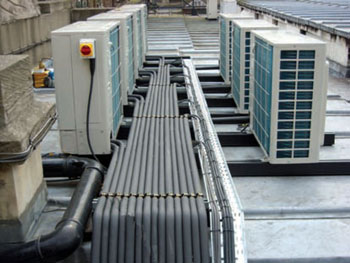
Also remember that larger units cost more and use additional energy. Running a smaller unit for a longer period of time will use less energy to completely cool a room than running a larger unit for a shorter time.
The cooling capacity of room air conditioners is measured in BTU per hour.
To figure the size unit you need, measure the space you're trying to cool and find it on this chart. To estimate square footage, multiply the length of the room by the width. (A room that's 10 feet by 20 feet, for example, has 200 square feet in it. The chart shows the recommended air conditioner for that sized space is rated at 6,000 BTUs.)
| To cool this area | sizes of air conditioner |
| 100 to 150 square feet | 5,000 BTUs |
| 150 to 250 square feet | 6,000 BTUs |
| 250 to 300 square feet | 7,000 BTUs |
| 300 to 350 square feet | 8,000 BTUs |
| 350 to 400 square feet | 9,000 BTUs |
| 400 to 450 square feet | 10,000 BTUs |
| 450 to 550 square feet | 12,000 BTUs |
| 550 to 700 square feet | 14,000 BTUs |
| 700 to 1,000 square feet | 18,000 BTUs |
| 1,000 to 1 400 square feet | 24,000 BTUs |
When looking for the correct size air conditioner, keep these suggestions in mind, as well:
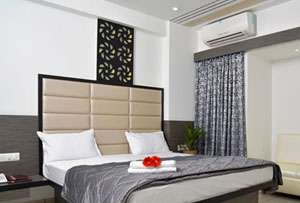
In addition to size, consider an air conditioner's EER - Energy Efficiency Ratio. The EER approximates the unit's operating cost as compared to similar models. The Higher the EER number, the less it will cost you to operate. Room air conditioners are one of the appliances given ENERGY STARĀ® ratings. New York PTAC Installation Services Room Air Conditioners feature high-efficiency compressors, fan motors and heat transfer surfaces. Air conditioners cool by passing air over refrigerant coils that have fins that look like an automobile radiator. A compressor sends the cooled refrigerant through the coils, and the air gets cooler as it is forced over the coils.
New York PTAC Installation Services air conditioners use advanced heat transfer technologies that transfer more of the heat from the air into the coils. This saves on the amount of energy required to compress the refrigerant. New York PTAC Installation Services Room Air Conditioners exceed minimum federal standards for energy consumption by at least 15%.
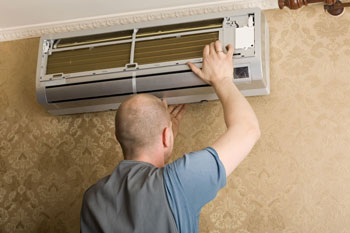
A new energy-saver feature cycles the compressor off and on so that it doesn't operate continuously, reducing your operating costs. Other features to look for are three-speed fan controls which allow you to adjust the amount of cool air (and noise!) the unit produces, and digital thermostats that are more precise and easy to use. Some room air conditioners also feature times that allow you to set the time you want the unit to come on, so it isn't governed by the temperature of the room alone.
One final word - all air conditioners have filters that need to be cleaned periodically. For easy maintenance, choose one that has a slide-out filter. Keeping the filter clean will save you energy and money.




